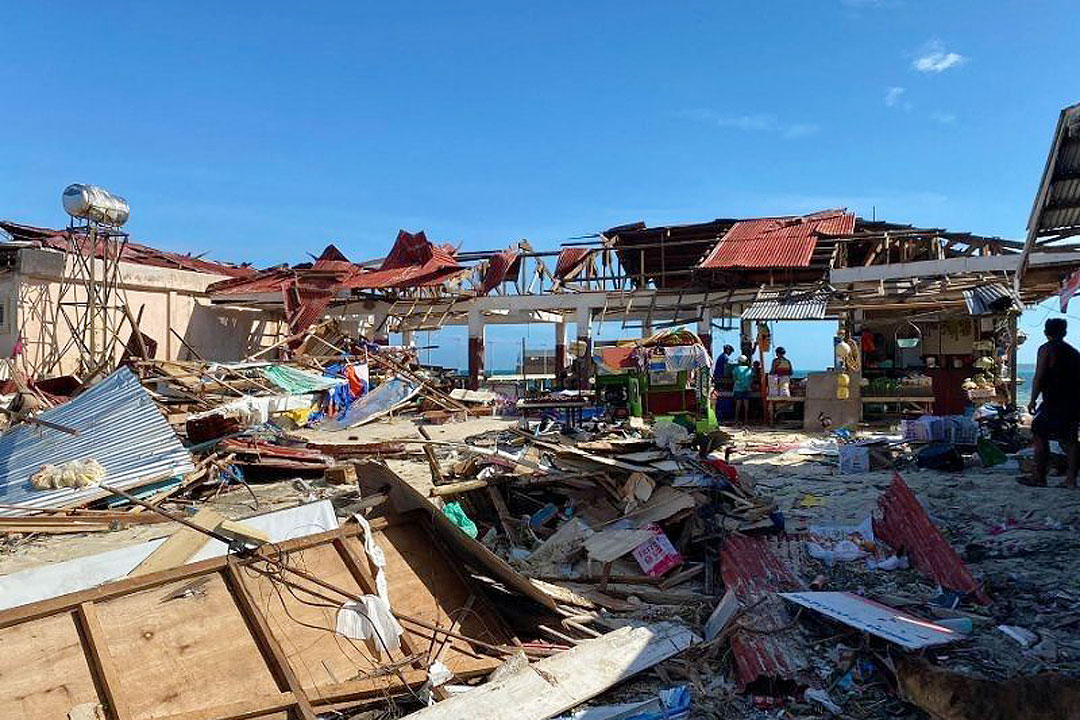THE Environment department’s plan to prevent residents from resettling along the coast in Siargao threatens to deprive thousands of their livelihood, nongovernment organizations said.
The plan by the Department of Environment and Natural Resources (DENR) needs to be reconsidered because relocation does not guarantee safety, Youth Advocates for Climate Action Philippines (YACAP) said.
“Relocation is not necessarily the best and only way. The current administration can implement people-focused policies,” YACAP said in a statement.
“Relocating them somewhere else… is easier said than done. The coastal communities of Siargao are not simply returning to their houses, but also their livelihoods and source of income,” the group said, adding that if they are relocated without consideration for their future earning potential, the outcomes will be negative.
Gabriela Women’s party-list Rep. Arlene D. Brosas said the DENR should take into consideration the rights of fisherfolk who rely on access to the waters.
“If giving them a bit of aid, tarpaulins, and wood from coconut trees is your plan for those who were affected, you don’t have the right to dictate where they should be living,” Ms. Brosas said.
Environment Undersecretary Benny D. Antiporda said on Tuesday that coastal residents of Siargao will no longer be permitted to return to their homes.
The DENR said it will work with local government units (LGUs) to identify qualified tenured residents who will be given land away from the sea for their safety.
“This will be settled as soon as possible, for now, the LGUs were instructed to look for a temporary resettlement area,” Mr. Antiporda told BusinessWorld in a Viber message.
Terezo Ravelo, the barangay captain of Caridad in the Siargao municipality of Pilar, said on video that “We have no homes to come back to” after the storm surge swept over the seaside village.
Typhoon Odette first made landfall in Siargao on Dec. 16, where 447 families have been sent to public schools and government facilities serving as evacuation centers.
Mr. Ravelo said residents are returning to their destroyed homes and living in makeshift shelters, periodically returning to evacuation centers whenever it rains.
Mr. Antiporda said typhoon victims will need to prove they have resided in coastal communities for at least five years to be eligible for a Protected Area Community-Based Resource Management Agreement, applications for which will be processed by LGUs and the DENR.
President Rodrigo R. Duterte has said of relocation plans: “If it’s government land, give everything. Better give it to the people.” — Marielle C. Lucenio
